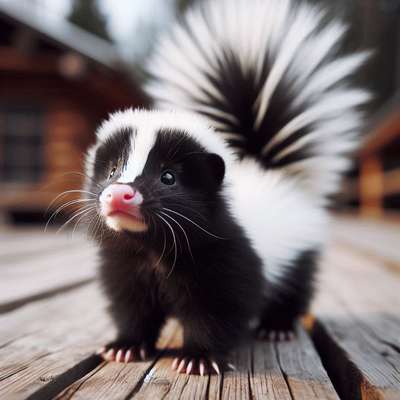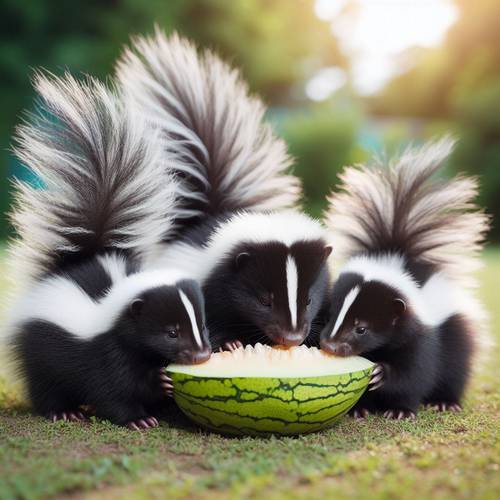Skunks: Masters of Adaptation with a Varied Palate
Don't let the smell fool you, skunks are fascinating creatures with a surprisingly adaptable diet. Classified as omnivores, they've mastered the art of finding a meal in almost any environment. While their menu changes with the seasons and their location, one thing remains constant: skunks are opportunistic eaters, making the most of whatever nature (and sometimes, our garbage cans) has to offer.
Insects form the cornerstone of their diet, with juicy grubs, crunchy beetles, and unsuspecting grasshoppers becoming tasty snacks. But their palate doesn't stop there. Skunks have a taste for sweet berries, fallen fruits, and even nuts and roots, adding a healthy dose of fiber to their meals.
This adaptable diet, shifting from protein-rich insects in the summer to carbohydrate-rich plants in the fall, allows them to thrive year-round. So, the next time you see a skunk, remember, there's more to them than meets the (sometimes smelly) eye!
Here are some of the skunk species showcasing this adaptability:
Striped Skunk (Mephitis mephitis)
Hooded Skunk (Mephitis macroura)
Eastern Spotted Skunk (Spilogale putorius)
Western Spotted Skunk (Spilogale gracilis)
Hog-nosed Skunk (Conepatus leuconotus)
Sunda Stink Badger (Mydaus javanensis) - Though called a "badger," it's classified as a skunk!
Each species has its own unique adaptations and preferred foods, but they all share the ability to thrive on a diverse and ever-changing menu.
Don't let the smell fool you, skunks are fascinating creatures with a surprisingly adaptable diet. Classified as omnivores, they've mastered the art of finding a meal in almost any environment. While their menu changes with the seasons and their location, one thing remains constant: skunks are opportunistic eaters, making the most of whatever nature (and sometimes, our garbage cans) has to offer.
Insects form the cornerstone of their diet, with juicy grubs, crunchy beetles, and unsuspecting grasshoppers becoming tasty snacks. But their palate doesn't stop there. Skunks have a taste for sweet berries, fallen fruits, and even nuts and roots, adding a healthy dose of fiber to their meals.
This adaptable diet, shifting from protein-rich insects in the summer to carbohydrate-rich plants in the fall, allows them to thrive year-round. So, the next time you see a skunk, remember, there's more to them than meets the (sometimes smelly) eye!
Here are some of the skunk species showcasing this adaptability:
Striped Skunk (Mephitis mephitis)
Hooded Skunk (Mephitis macroura)
Eastern Spotted Skunk (Spilogale putorius)
Western Spotted Skunk (Spilogale gracilis)
Hog-nosed Skunk (Conepatus leuconotus)
Sunda Stink Badger (Mydaus javanensis) - Though called a "badger," it's classified as a skunk!
Each species has its own unique adaptations and preferred foods, but they all share the ability to thrive on a diverse and ever-changing menu.



